CAESAREA, Israel — Ten years ago this week, two Palestinian attackers boarded a bus in Jerusalem and shot, beat and stabbed Israeli American educator Richard Lakin to death along with two others before police killed one of the militants and injured and arrested the other.
The surviving assailant, Bilal Abu Ghanem, was freed in February from his three consecutive life sentences for murder as part of the last Israeli ceasefire and hostage release deal with Hamas.
That’s when his son, Micah Avni, had to watch his father’s murderer go free.
“It feels like I’ve been betrayed by my country,” Avni, 56, said the day before Hamas exchanged 24 Israeli hostages for about 2,000 Palestinian detainees and prisoners, including 250 serving life sentences for serious crimes including terrorism.
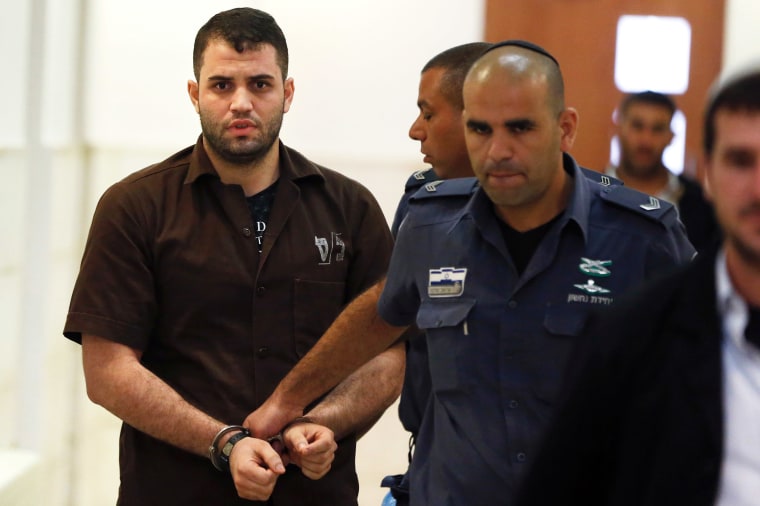
Avni’s anguish and anger have now merged with a larger collective, shared by many Israelis whose loved ones were killed or maimed in terror attacks and who must now watch the perpetrators walk free as part of the latest ceasefire negotiated by the Trump administration.
Their torment hasn’t just punctured the euphoria surrounding last week’s agreement — it very nearly halted the deal and could still frustrate its full implementation.
Two far-right political parties in Israel’s government cited the release of 250 convicts as their reason for voting against President Donald Trump’s ceasefire and hostage release plan.
“Alongside this joy, it is absolutely forbidden to ignore the question of the price: the release of thousands of terrorists,” said Itamar Ben-Gvir, the far-right minister of national security and leader of the Otzma Yehudit party, in a statement explaining his party’s opposition. “These are terrorists whose past experience proves that they will return to terrorism and their art of working to murder Jews.”
While Ben-Gvir and others refer to thousands of “terrorists” released, 250 of those released were convicted of serious crimes.
Most of the rest of the more than 1,700 people let go, among them doctors, nurses and journalists, had been held without charge. These detainees were not involved in the Oct. 7, 2023, attacks and were held under a controversial practice called administrative detention, which allows Israel to detain people for an indefinite period of time without ever charging them. More than 20 minors were on the list.
For Palestinians in Gaza and the occupied West Bank, the releases were cause for celebrations. Prisoners and detainees who returned to Gaza rode on the tops of buses through crowds of well-wishers.
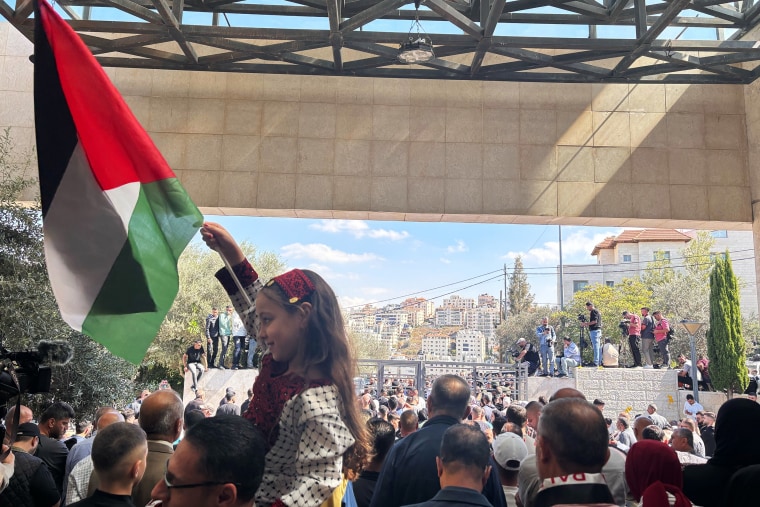
In the West Bank, families waited for the released prisoners outside the Ramallah Cultural Palace in the Palestinians’ provisional capital. Some women and young girls arrived in traditional Palestinian dresses. Many refused to speak to the gathered press: Israel’s military, they said, had called them and warned them not speak to the media.
The prisoners’ families said they had seen others being re-arrested in the past and didn’t want to gamble on the convicts’ hard-won freedom.
“For Israel, any Palestinian is a terrorist,” said the uncle of one of the released Palestinians, who refused to give his name, “even if they didn’t do anything.”
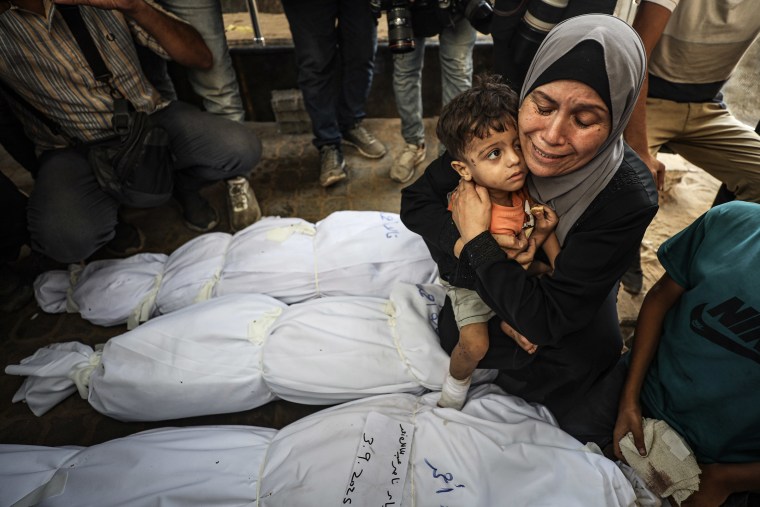
In addition, there is the collective pain of nearly 2 million in Gaza who have endured Israel’s two-year war against Hamas. There is little hope among Palestinians that anybody will be held responsible for the tens of thousands of innocent civilians killed by Israeli fire, along with those maimed in attacks.
Israel has accused Hamas of operating in civilian areas, thus necessitating attacks that endanger noncombatants. In November, the International Criminal Court issued arrest warrants for Israeli Prime Minister Benjamin Netanyahu and former Defense Minister Yoav Gallant, as well as Hamas military chief Mohammed Deif, whom Israel said it had killed, over alleged crimes against humanity and war crimes.
Israel has forcefully rejected the allegations, and Netanyahu’s office branded the decision “antisemitic,” rejecting them as “absurd and false” and condemning the ICC as a “biased and discriminatory political body.”
Tinged with sadness
Prime Minister Benjamin Netanyahu acknowledged many Israelis’ public pain in comments on Sunday night.
“Tomorrow, our sons will return to their borders,” he said. “This is a historic event that is tinged with sadness over the release of murderers — and joy over the return of kidnapped people.”
Under President Donald Trump’s 20-point plan for ending the fighting, Hamas fighters who lay down their weapons would be spared any punishment — a condition that has also raised grave reservations among many Israelis, including Netanyahu, who had hoped to see Hamas destroyed.
Rachel Goldberg-Polin, an American Israeli whose son, Hersh, was kidnapped on Oct. 7 and then killed by Hamas last year, said she’s rejected the feelings of anger that come with grief.
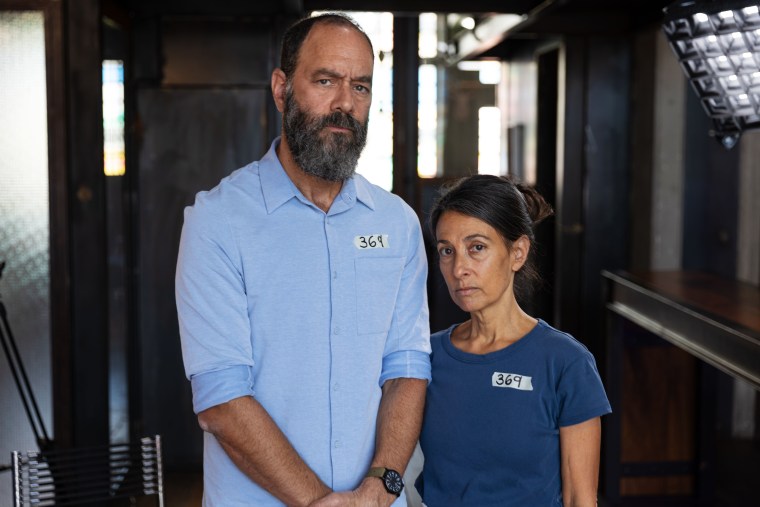
“Nothing can bring Hersh back,” she said in an interview last week. “I tend to look at this in a very zoomed-out way. I don’t have this fiery venomous anger that I think wouldn’t serve me in any purpose.”
Avni, who opposed this week’s deal, said he worries that the released convicts will simply return to the battlefield or engage in terrorism against Israelis.
“Obviously, every single Jewish person wants to get the hostages back,” he said. “It doesn’t mean that strategically trading thousands of terrorists for 20 lives makes sense.”
Avni has advocated executing terrorists as a way to remove prisoner exchanges from the negotiating table. Israeli law allows for capital punishment, but only for treason and “crimes against humanity.” The death sentence has been used only twice in Israeli history.
In the hours after his father’s murder, Avni admits that he considered taking matters into his own hands. Both Lakin and Abu Ghanem were taken to the same ward in the same Jerusalem hospital after the attack.
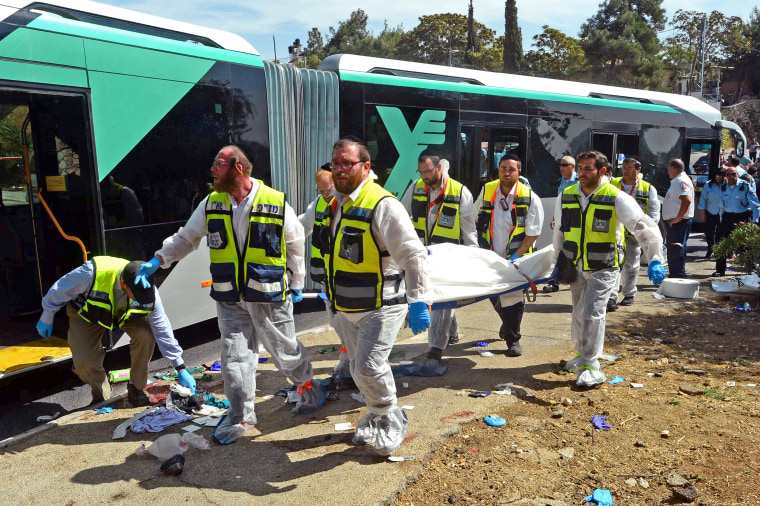
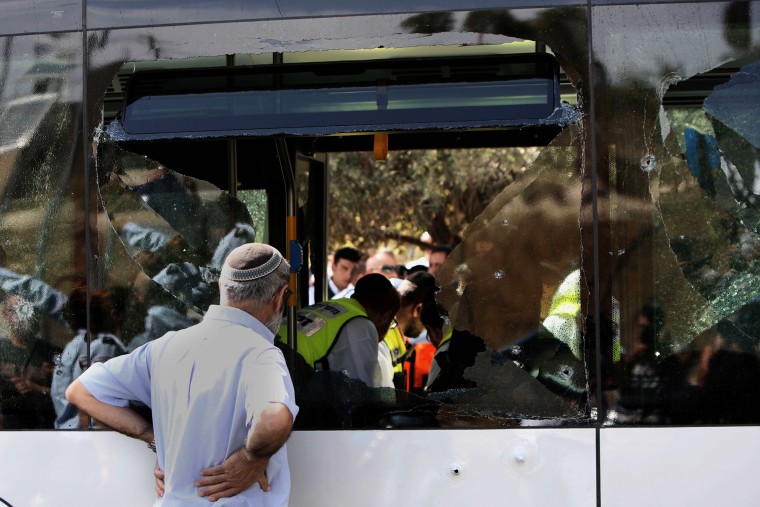
The two men were treated only yards apart. Lakin died, but his killer survived.
“I think I would have jumped on him and done something but he had police standing there,” Avni said. “I remember thinking to myself, you know, you’ll go to jail for life, and you’ve got responsibilities.”
Recounting the cruel irony of his father’s killing still brings tears to Avni’s eyes. His father had been a peace-loving school principal who advocated for racially integrated education, had marched with Martin Luther King Jr. and participated in the anti-segregation “Freedom Riders” movement during the 1960s.
The family moved to Israel when Avni was 15 years old.
“He was a big believer in coexistence. I wish everybody could be like that, but they’re not,” Avni said of his father. “It was an innocent world view.”
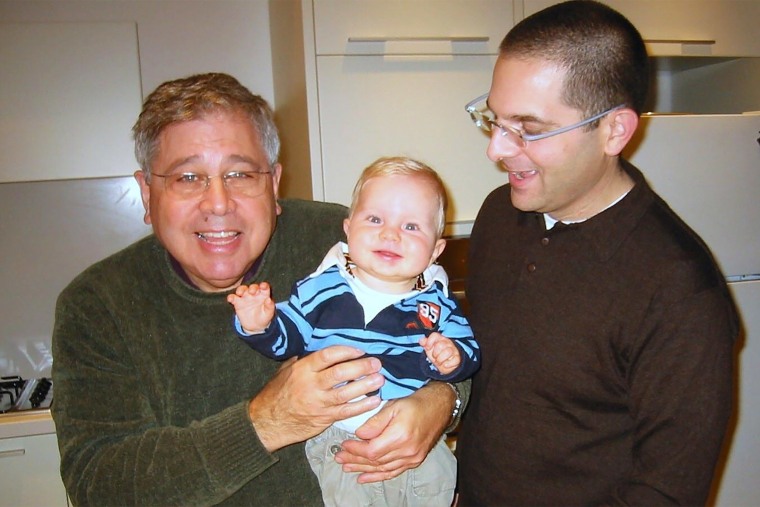
Matt Bradley reported from Caesarea, and Daniele Hamamdjian from Ramallah in the occupied West Bank.


